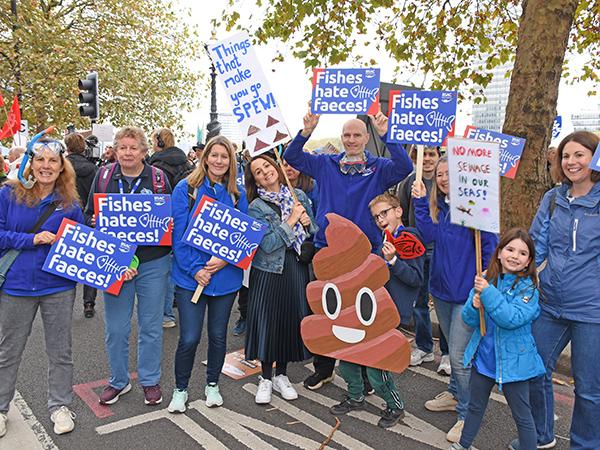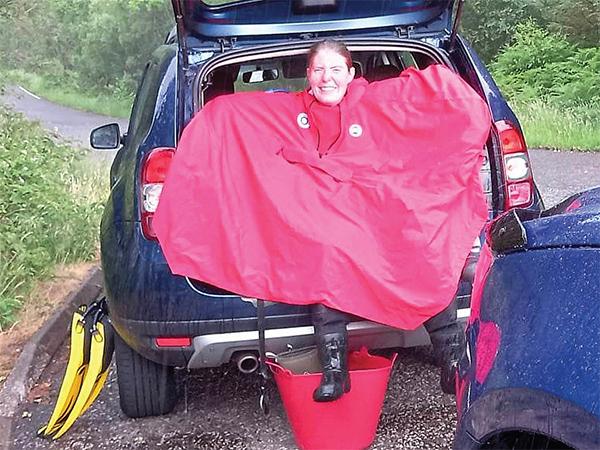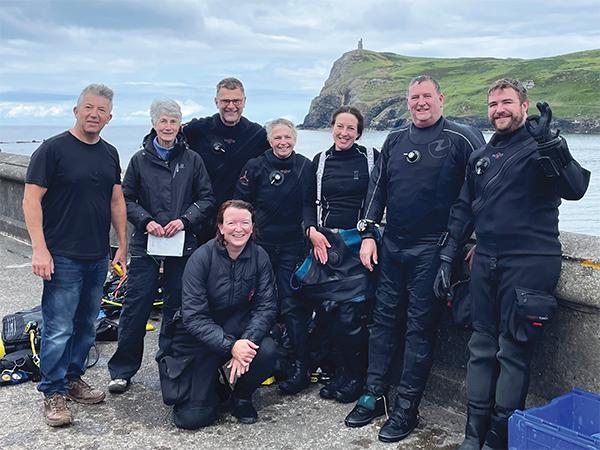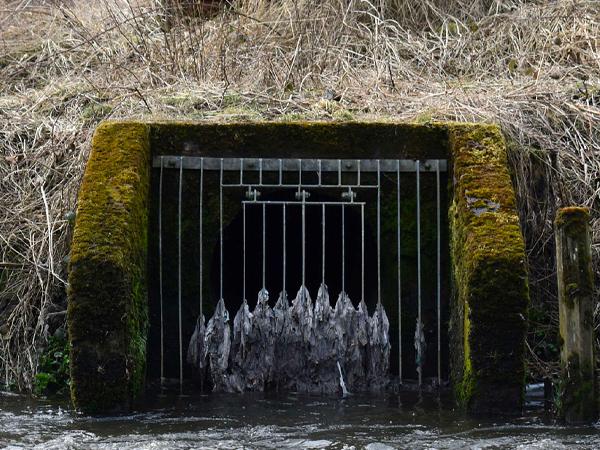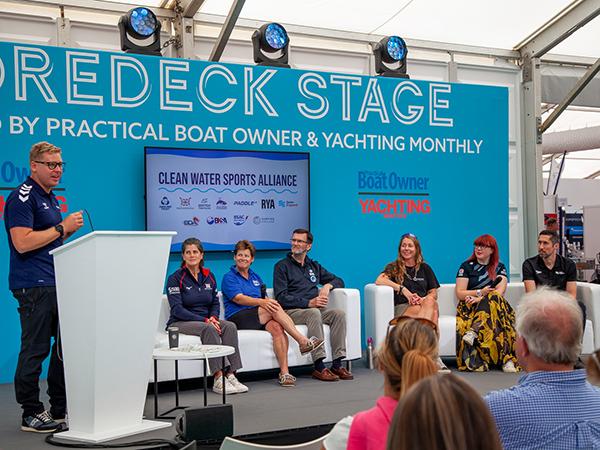Got questions about Motion for the Ocean? You're in the right place!
Here, we’ve answered the most common queries to help you understand the Motion for the Ocean and how you can get involved. Still have a question? Email us at m4to@bsac.com
Why is the Motion for the Ocean needed?
Our ocean is in crisis. Marine wildlife has declined by more than half since 1970, and our ocean is more polluted and exploited than ever before. This is not just something that is happening on far-flung coral reefs or in our polar regions, it is happening right here in the UK too.
As divers and snorkellers, we see the reality of this ocean emergency first-hand: plastic litter, ghost fishing gear, entangled marine wildlife and even raw sewage. There are also the less obvious threats, such as forever chemicals that never break down and unprecedented marine heatwaves from climate change, the impacts of which are yet to fully reveal themselves.
The ocean is our playground, but its health is important for every single person on the planet. It provides every second breath we take, the gas and electricity we rely on, and is the main source of protein for over 3 billion people. Our ocean is also our greatest climate ally, absorbing 90% of planetary heat and 20% of our carbon dioxide emissions.
We need to see urgent action to not only stop this decline, but to reverse it. This is what we mean when we say, “ocean recovery”.
We often look to national government to fix these issues, but local government also has an essential role to play. Just look at the success of the Climate Emergency Declarations, passed now by over 2,300 local governments worldwide covering over 1 billion citizens, all now key players in the fight against climate change.
This is where you come in.
What is the Motion for the Ocean?
Developed by ocean experts, the Motion for the Ocean is a “how to help” blueprint to enable local councils to take meaningful action for our ocean and waterways. It is made up of 8 pledges that cover the things that any council can do to help the ocean.
A “Motion” is a proposal that a councillor puts forward to be voted on by all the councillors within that Council – hence the name, Motion for the Ocean!
Councillors will discuss the proposed Motion and then vote on it. If a majority of Councillors vote in favour of it, then it is considered “passed” and the council will have to act on the commitments made within it. There is a deadline within it saying they must report back on progress within 12 months.
The Motion for the Ocean was founded in 2021 by ocean experts, Dr Pamela Buchan (University of Exeter), Emily Cunningham MBE, and Nicola Bridge (Ocean Conservation Trust). The team now includes Beccy Macdonald-Lofts (Local Government Association Coastal Special Interest Group) and Grace Clifford (Ocean Conservation Trust).
Which councils have passed a Motion for the Ocean so far?
The Motion for the Ocean has been passed by more than 30 councils in England (so far!). This includes Town and Parish Councils, Borough and District Councils, City Councils and County Councils. These councils are coastal and inland, including 4 so far in the Midlands. Any council can pass a Motion for the Ocean.
Check the map below to see which councils have already passed a Motion for the Ocean:
I live inland, is this relevant to me?
Yes! No matter where we live in the UK, our actions have impact as our drains, streams and rivers connect us all to the ocean. The burden of taking care of our ocean often falls to those at the coast, but coastal communities are at the end of the line and receive pollution, litter, and other problems from upstream. Actions taken inland can have a huge effect, in some cases more than action taken at the coast.
Both coastal and inland councils have passed a Motion for the Ocean, including four councils in the Midlands (in Staffs and Notts).
An inland version of the Motion for the Ocean was developed for these Midlands councils, focusing on taking care of local waterways. If you live inland, please send the inland version of the Motion for the Ocean to your local council.
At the moment, we have developed versions for coastal and inland councils in England, and a version for coastal coastal councils in Wales.
In the UK, environmental policy is "devolved", meaning it differs between England, Wales, Scotland and Northern Ireland. This means we need different versions of the Motion for the Ocean for each nation.
The Motion for the Ocean team are currently developing versions for inland councils in Wales, as well as versions for Scotland and Northern Ireland. Please get in touch with us at m4to@bsac.com if you are from these areas and would like to get involved.
How do I find out who my local councillor is?
You can find the name of your local councillor here: https://www.gov.uk/find-your-local-councillors
Don’t worry, you’re far from alone in not knowing who your local Councillor is. A YouGov survey1 found that 79% of residents in one region were unable to name a single local councillor!
I’ve never written to a councillor before! What do I need to know?
Councillors are elected to represent the views of local residents – i.e. you! It’s vital that we all engage with our local elected representative about issues that are important to us. In all likelihood, those issues will be important to other people locally too.
Remember that councillors are local residents just like you. Anyone aged 18 or over can run to become a councillor, and most people choose to do so because they want to make their local area a better place to live.
We have put together some top tips on how to write to a Councillor, but the main thing to remember is to be polite, respectful and patient. Many councillors fulfil their council duties around a full-time job and have the same responsibilities as the rest of us, such as raising their children or caring for family members.
What does a councillor do?
A councillor is someone who is elected to represent the views and needs of their local community on the local council. Local residents can contact their councillor about issues that concern them and ask the councillor to take action. This can include things like ocean conservation or climate change.
Some councillors are a member of a political party and some are independent. The Motion for the Ocean has been proposed by councillors from across the political spectrum, including independent councillors.
Councillors do not receive a salary, instead they get a modest allowance to cover their expenses and the time they spend on their duties.

